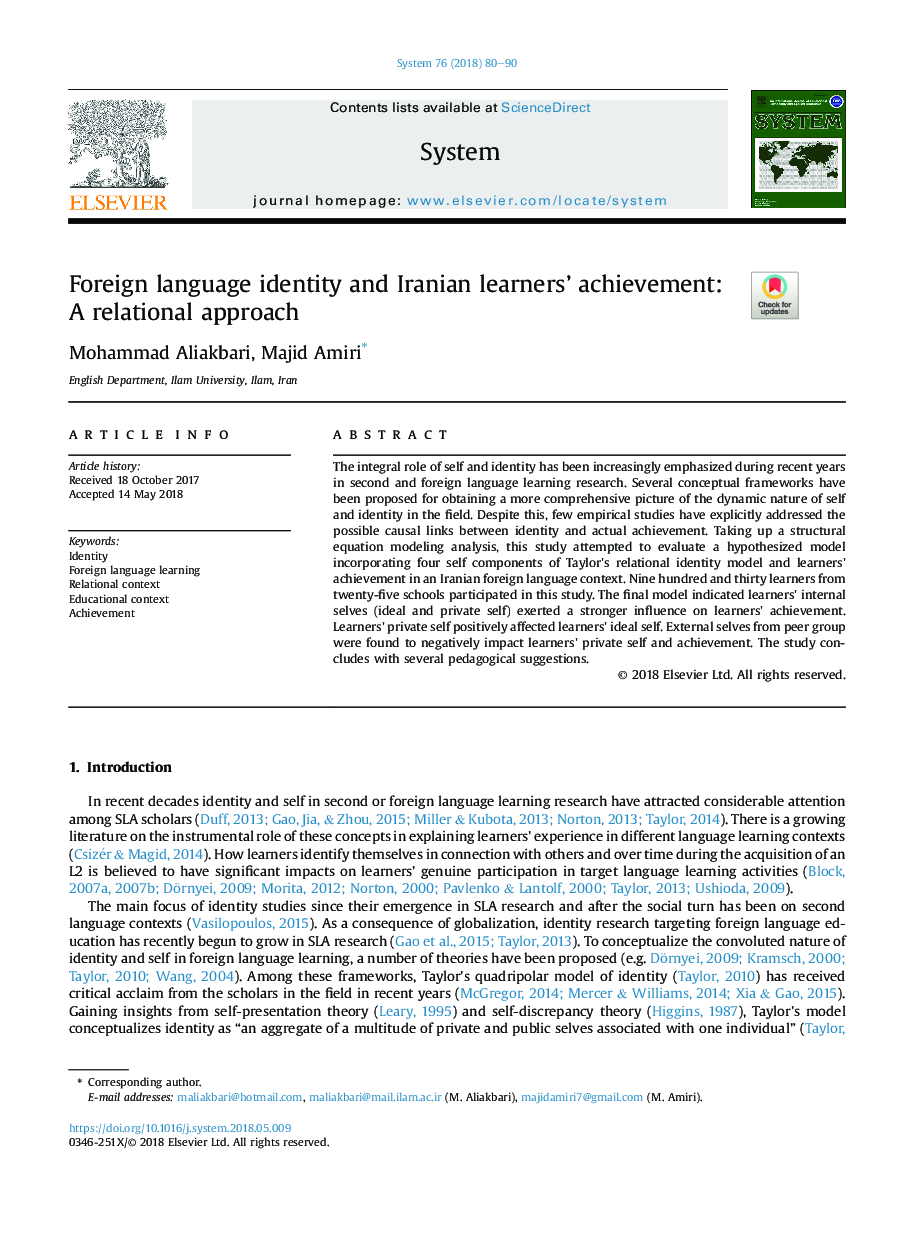| Article ID | Journal | Published Year | Pages | File Type |
|---|---|---|---|---|
| 6849247 | System | 2018 | 11 Pages |
Abstract
The integral role of self and identity has been increasingly emphasized during recent years in second and foreign language learning research. Several conceptual frameworks have been proposed for obtaining a more comprehensive picture of the dynamic nature of self and identity in the field. Despite this, few empirical studies have explicitly addressed the possible causal links between identity and actual achievement. Taking up a structural equation modeling analysis, this study attempted to evaluate a hypothesized model incorporating four self components of Taylor's relational identity model and learners' achievement in an Iranian foreign language context. Nine hundred and thirty learners from twenty-five schools participated in this study. The final model indicated learners' internal selves (ideal and private self) exerted a stronger influence on learners' achievement. Learners' private self positively affected learners' ideal self. External selves from peer group were found to negatively impact learners' private self and achievement. The study concludes with several pedagogical suggestions.
Related Topics
Social Sciences and Humanities
Arts and Humanities
Language and Linguistics
Authors
Mohammad Aliakbari, Majid Amiri,
